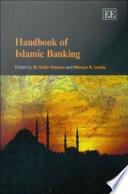
Islamic Banking and Financial Crisis
Reputation, Stability and Risks
Examines the resilience of Islamic banking during the global financial crisis and lessons for risk management. Do Islamic financial institutions perform better than their conventional counterparts during periods of financial stress? To what extent do systems for managing risk have to be adapted for Islamic financial institutions, given the unique characteristics of their assets and liabilities and the need for shari'ah compliance? These issues have come to prominence since the global financial crisis of 2007-8 and the subsequent recession, and are addressed in this book. The challenges for Islamic financial institutions are explored in an international post Basel II system where banks are required to have more capital and liquidity. Governance issues are also examined, given their influence on client and investor perceptions and their ultimate implications for institutional stability and sustainability.Offers an in-depth assessment of how Islamic banks weathered the financial crisis and what lessons can be learnt. Asks whether Islamic banks are inherently more stable than conventional banks during periods of economic stress. Examines how Islamic banks manage risk, focusing on liquidity risk and the use of forward contracts to mitigate currency risk. Appraises the work of internal shari'ah audit units and the use of shari'ah reports to reduce non-compliance risks. Features case studies from the Gulf, Malaysia, the UK, Pakistan, Turkey and GCC countries.
- ISBN 13 : 0748672370
- ISBN 10 : 9780748672370
- Judul : Islamic Banking and Financial Crisis
- Sub Judul : Reputation, Stability and Risks
- Pengarang : Habib Ahmed,
- Kategori : Social Science
- Penerbit : Edinburgh University Press
- Bahasa : en
- Tahun : 2013
- Halaman : 256
- Google Book : https://play.google.com/store/books/details?id=80erBgAAQBAJ&source=gbs_api
-
Ketersediaan :
Appraises the work of internal shari'ah audit units and the use of shari'ah reports to reduce non-compliance risks. Features case studies from the Gulf, Malaysia, the UK, Pakistan, Turkey and GCC countries.









